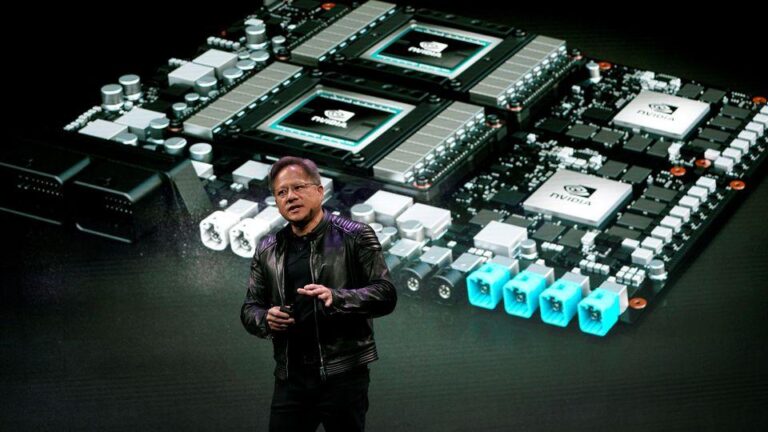The United States government has granted Nvidia a license to export certain semiconductor chips to China, a senior official confirmed, marking a notable development in the ongoing technology trade dynamics between the two nations. The move comes amid heightened scrutiny over advanced chip sales to China, reflecting a cautious balancing act between safeguarding national security interests and supporting American tech firms’ business operations abroad, Reuters reports.
US Grants Nvidia Export License to China Amid Tech Tensions
The United States government has granted Nvidia a special export license allowing the sale of high-performance chips to Chinese companies. This move marks a departure from the previously stringent export controls that restricted American semiconductor technology from reaching certain sectors in China. Officials emphasize that the authorization is narrowly tailored, targeting specific products and customers to balance national security concerns with economic interests.
Key details of the license include:
- Authorization applies primarily to Nvidia’s advanced AI and data center chips.
- Exports are limited to approved Chinese firms, mainly those outside military or sensitive industries.
- U.S. regulators will conduct ongoing assessments to ensure compliance and mitigate risks.
| Chip Category | Export Permission | Usage Restrictions |
|---|---|---|
| AI Accelerators | Allowed | Non-military, commercial AI development only |
| Graphics Processing Units (GPUs) | Restricted | Limited quantity, monitoring required |
| Specialized Chips | Prohibited | No exports to sensitive defense sectors |
Implications for Global Semiconductor Supply Chains and Market Dynamics
The decision to grant Nvidia a license to export advanced chips to China represents a pivotal shift in the fragile equilibrium of global semiconductor supply chains. It underscores Washington’s nuanced approach to balancing technological leadership with diplomatic and economic considerations. By allowing certain exports, the U.S. aims to maintain influence over supply dynamics while ensuring critical markets remain accessible to American tech giants. This development is likely to prompt recalibrations among manufacturers and distributors, as strategic dependencies on Chinese demand persist alongside concerns over intellectual property and national security.
Key repercussions may include:
- Enhanced competition: Other global chipmakers may accelerate innovation to counterbalance Nvidia’s expanded market presence in China.
- Supply chain diversification: Companies might intensify efforts to redesign logistics networks to mitigate geopolitical risks revealed by the export license policy.
- Market volatility: Short-term price fluctuations could emerge as supply-demand imbalances adjust to new trade flows.
- Policy ripple effects: Partner nations could revisit their own semiconductor strategies in response to U.S. export licensing actions.
| Aspect | Potential Impact |
|---|---|
| Supply Chain Resilience | Increases with diversified sourcing |
| Market Access | Expands for U.S. semiconductor firms |
| Geopolitical Tensions | May ease or intensify subtly |
| Technology Transfer Risks | Heightened scrutiny expected |
Experts Urge Enhanced Compliance Measures and Strategic Navigation for Nvidia
Industry analysts emphasize that while the recent US license approval for Nvidia to export advanced chips to China marks a significant development in international trade relations, it simultaneously calls for heightened compliance protocols. Experts warn that Nvidia must navigate a complex regulatory environment, where even minor missteps could lead to severe penalties or revocation of export privileges. Companies operating at this scale are urged to implement rigorous internal audits and enhanced training to ensure all shipments strictly adhere to evolving government restrictions.
Strategic foresight is equally vital, with specialists advising Nvidia to adopt a multifaceted approach combining legal guidance, real-time monitoring of trade policies, and proactive risk management. To contextualize this, the table below highlights key focus areas recommended for Nvidia’s compliance strategy:
| Priority | Recommended Action |
|---|---|
| Legal Review | Continuous updates on export laws |
| Supply Chain Transparency | Thorough vendor screening and documentation |
| Staff Training | Regular compliance workshops |
| Risk Management | Scenario planning and contingency protocols |
- Close collaboration with regulatory bodies to anticipate policy shifts.
- Investment in technology for monitoring export compliance in real-time. Close collaboration with regulatory bodies to anticipate policy shifts.
- Investment in technology for monitoring export compliance in real-time.
- Robust documentation processes to maintain audit trails and evidence of compliance.
- Periodic internal audits to identify and rectify any compliance gaps early.
Let me know if you’d like me to help with further edits or additions!
Concluding Remarks
The recent approval of export licenses for Nvidia to send advanced chips to China marks a significant development in the ongoing technology trade negotiations between the two nations. While the move may ease some tensions and pave the way for increased commercial cooperation, it also underscores the complex challenges of balancing national security concerns with global market dynamics. Stakeholders will be closely monitoring how this decision impacts the semiconductor industry and broader US-China relations in the months ahead.




